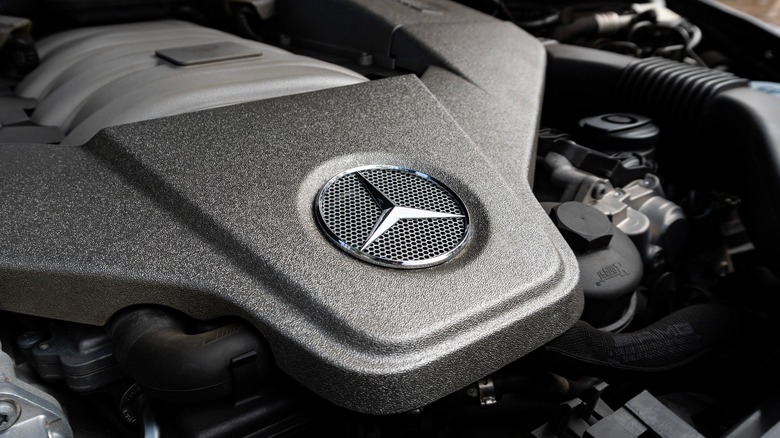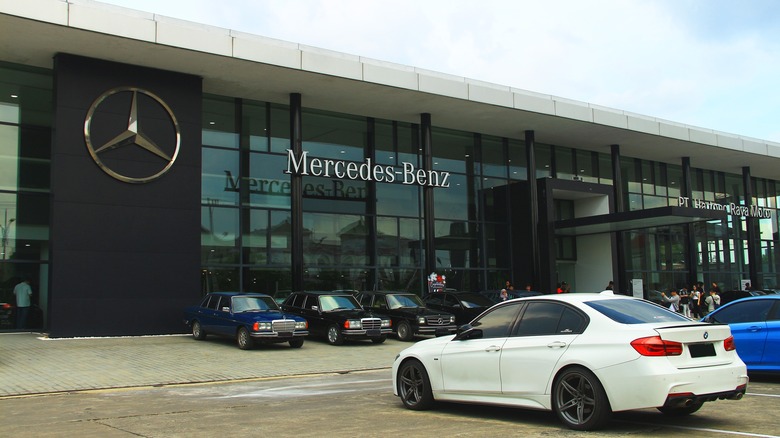Who Makes Mercedes Engines And Are They The Same As BMW?
When considering reliable, well-respected German vehicle brands, it's difficult not to mention Mercedes-Benz and BMW. Both companies have spent the last century building its brand names, offering everything from state-of-the-art daily drivers and high-end concept vehicles to timeless luxury cars that continue to turn heads today. Given its area of operation, it's only right that the two maintain a healthy rivalry, one that always pushes each company to deliver its best. Given this rivalry, it would be strange if either were to ever use vehicle parts from the other's camp, and rightly so.
In August, reports came in that Mercedes was in talks to use BMW engines in some of its vehicles, such as the GLA SUV and CLA sedan. However, in an interview with Motor1, Mercedes-Benz's Chief Technology Officer, Markus Schaefer, clarified those remarks by stating that Mercedes has developed its "own new family of modular engines—FAME (Family of Modular Engines)—which covers all displacements."
In that respect, Mercedes-Benz does indeed make its own engines, although not all of them. Even so, none of its engines are made or are the same as BMW engines, especially considering the differing engineering philosophies of the two companies. Let's talk about it.
Each manufacturer operates several engine manufacturing plants across Europe and Asia
Although both companies were founded in the first quarter of the 20th century, Mercedes-Benz was established first in 1904. About 12 years later, a company that would eventually become the BMW we know and love today began operations, focusing on building aircraft engines. Such age brings experience, which is reflected in the companies' products, namely its engines, which feel pretty distinct from each other. While BMW's engines can feel more sporty, Mercedes-Benz engines feel smoother and quieter. It's crucial to mention, though, that Mercedes does have sportier engines, which are among its greatest and are managed by its high-performance subsidiary, AMG.
When it comes to engine manufacturing plants, each brand has specific locations where its engines are designed and built. On Mercedes' side, said plants can be found in Affalterbach, Berlin, Kölleda, and Arnstadt, all of which are in Germany. There are additional plants in Sebes and Cugir, Romania, and Beijing, China, that are also involved in making engines for the company. Finally, the automotive giant has also been known to source engines from other manufacturers, such as Renault, through a strategic partnership with the Renault–Nissan–Mitsubishi Alliance. A notable example here is the 1.3L turbocharged engine used in the Mercedes A-Class.
Like Mercedes-Benz's engines, BMW's engines are also produced in multiple plants across the world. These can be found in Steyr, Austria, North Warwickshire, the United Kingdom; Shenyang, China; and Munich, Germany.

